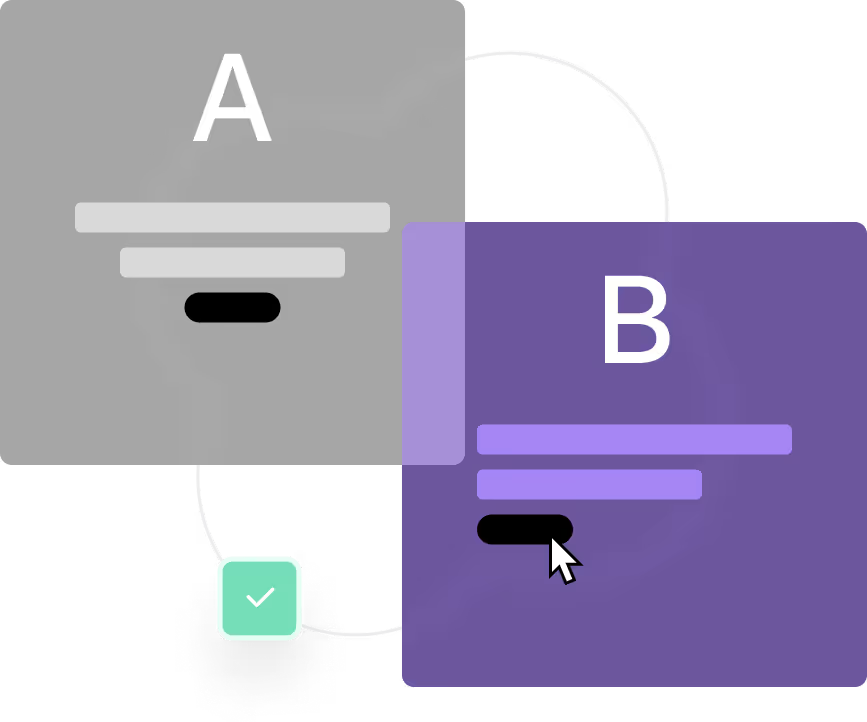Smart routing is a powerful way for merchants to improve payment performance. It lets you configure rules to dynamically route payments across different payment processors, increasing the chances of authorization and reducing failed transactions.
In this article, we’ll explore how smart routing works and the key advantages it offers for merchants looking to optimize their payments stack.
Looking to set up smart routing right away? Contact one of our experts to learn more about how Primer can help
What is smart routing (and how does it work)?
Every time a customer clicks “pay,” a rich data set is generated. This includes everything from card type and issuing country to transaction amount and currency.
Smart routing puts that data to work. Based on the rules you define, it decides where to send each payment. You might route certain card types to a preferred processor, steer high-value payments to a provider with strong fraud tools, or split traffic by region to boost local approval rates.
Example: Smart routing in action
Let’s say a merchant uses two payment processors:
- A global processor with wide coverage and strong fraud protection
- A local processor in Greece with lower fees and better success rates for Greek-issued cards
The merchant sets up a few smart routing rules to make the most of both. These follow a simple if…then structure:
Rule 1: Lower costs
If the card is issued in Greece, route the payment to the local processor. It’s cheaper and approves more local transactions.
Rule 2: Manage risk
If the transaction is over €2,000, route it to the global processor even if it’s a Greek card, because it offers stronger fraud protection.
Rule 3: Ensure uptime
If the local processor is down, the payment will be redirected to the global processor, so the customer can still make the payment.
By layering rules like this, the merchant can reduce costs, improve approval rates, and handle risk more effectively without manual intervention.
With a platform like Primer, you can set up this payment routing with no code required. Keep reading to learn more, or book a call to find out how we can help
The importance of A/B testing: how smart routing can help
A/B testing is a crucial part of any high-performing payment strategy. Without it, you’re relying on guesswork. With it, you gain the data needed to make confident, informed decisions about where to route your payments.
Smart routing makes it easy to run these experiments and continuously optimize over time.
For example, imagine a merchant who wants to understand which of their two processors delivers the best results for Greek-issued cards.
They can use smart routing to set up an A/B test that randomly routes half of those payments to a local processor and the other half to a global one.
Over time, the merchant can compare key performance metrics, such as:
- Authorization rates: Which processor approves more legitimate payments?
- Fraud rates: Which processor more accurately identifies risky transactions without causing false declines?
This kind of testing removes the guesswork from strategic decision-making. Instead of relying on assumptions, merchants can use real data to shape their payment logic.
A/B testing makes it easier to weigh trade-offs. If a processor is better at blocking fraud but approves fewer legitimate payments, the merchant can decide whether that outcome aligns with their risk appetite.
Whatever the goal, A/B testing provides a reliable feedback loop that helps you continuously refine your strategy and adapt to changes over time.
Read more about the importance of A/B testing: The art and science of A/B testing in payments
5 benefits of smart routing payments
Smart routing isn’t just about sending a payment from A to B; it’s about giving every transaction the best chance of success while balancing performance, cost, and risk.
Here are five key benefits of using smart routing:
1. Increase payment authorization rates
Smart routing increases your chances of success by sending each transaction to the processor most likely to approve it. You can also set up fallback processors to retry soft declines and recover more revenue.
2. Deliver cost efficiency
Each failed payment costs more than lost revenue. Smart routing can reduce fees and improve margins over time by minimizing declines and routing transactions through your most cost-effective processors.
3. Accelerate transaction times
Some processors are faster than others. Smart routing helps reduce delays by picking the quickest route, especially useful in verticals where speed at checkout makes all the difference.
4. Improve risk management
Between 2023 and 2028, global merchants are projected to lose over $362 billion to payment fraud. With smart routing, you can direct high-risk or high-value transactions to processors with stronger fraud detection without disrupting the customer experience.
5. Enhance the customer experience
Slow checkouts, failed payments, and false declines drive customers away. Smart routing helps make transactions faster, smoother, and more reliable, leading to happier customers and fewer abandoned carts.
Read more: Understanding cart abandonment rates: Industry benchmarks and best practices
Cascading payments and their importance in smart routing
If you only set up one smart routing flow, make it cascading payments.
Cascading payments give you a safety net. When a transaction is soft-declined by one processor, it’s automatically retried through another, with no extra steps for the customer.
That matters more than you might think. Studies have shown that 62% of customers who experience failed online transactions never return to the merchant for another try. That’s why cascading payments matter so much.
While the concept is straightforward, building cascading logic yourself isn’t. You must manually integrate with and manage multiple PSPs, and set up complex logic to interpret and respond to different decline codes.
That’s where a unified payments infrastructure like Primer makes all the difference. We have an out-of-the-box cascading payments feature called Fallbacks, which recovered over $30 million in failed payments for merchants using Primer in the last twelve months.
Read more: How to recover lost revenue with cascading payments
The smarter way to set up smart routing: Primer
Until recently, merchants had two options for smart routing: build it themselves or rely on a single payment gateway. Neither approach scales well.
The DIY route gets expensive and complex fast. Most merchants who go down this path end up with a rigid, hard-to-maintain system. We often hear from merchants who added just one or two processors before realizing the in-house approach isn’t sustainable.
Single gateway solutions are easier to set up but come with significant trade-offs. You can’t route across multiple providers, fully control your costs, or accept every payment method you need. These “full-stack” platforms often bundle services you don’t use, while still forcing you to plug in other tools to fill the gaps.
Our co-founder & CEO, Gabriel Le Roux, got tired of watching merchants struggle with this choice.
That’s the reason Primer exists.
Primer gives merchants a faster, smarter, more flexible way to implement smart routing. With one API, you can connect all your payment services—processors, fraud tools, PSPs, and more—and control them through a drag-and-drop interface.
There is no code, no heavy lifting, just results.
But that’s just scratching the surface. As a unified payments infrastructure, Primer provides a wide array of tools to optimize your payments and overall commerce flows.
Learn more about Primer’s unified payment infrastructure.
How to get started with smart routing using Primer
Primer makes it easy to set up and test smart routing. With our no-code Workflows, you can try different strategies, and our Observability Dashboard helps you track performance in real time, so you always know what’s working across your payment stack.
But you don’t have to start big. Simple, high-impact flows can go a long way.
Here’s what you can set up on Day 1:
1. Add the payment service providers (PSPs) you want to route between. Primer supports a wide range of global and local processors, and you can activate them with just a few clicks in the Primer Dashboard. Once you’ve signed your contract with each payment processor or payment service, it’s only a matter of clicks before you’re up and running.

2. With more than one PSP connected, you can enable Fallbacks to recover failed payments. Just select your fallback processor in the condition block of the Primer Workflow. You don’t have to worry about retry logic or decline codes. Primer handles it all using our Unified Mapping Standard.

3. Once you’re live, you can explore more advanced strategies. Primer’s Workflows let you build logic based on any data point in the transaction: region, card type, BIN, issuing bank, customer ID, and more.

Once you’ve set up the basics, you can experiment with more advanced payment routing strategies. Here are a few ideas to help you reduce costs, boost success rates, and stay in control:
- Send transactions to the most cost-effective or reliable payment processor, depending on the region, card issuer, BIN, and other transaction data, so you can reduce fees, boost acceptance rates, and drive revenue growth.
- Ensure all your processors have enough traffic to stay above your minimum contractual commitment.
- Customize routing logic based on payment method, such as card type or alternative payment method.
- Automate load balancing with multiple processors, to split or reroute traffic during peak times, or if there’s a processor outage
- Build an intelligent 3DS strategy across all processors, telling Primer what conditions should trigger an automatic 3DS challenge (Note: Primer’s agnostic 3DS even helps you remove friction from the payment process by using the same 3DS authentication results with each payment retry, even with a different processor.)
- Instantly A/B test payment flows without any code to keep optimizing and refining your payment flows.
- Trigger automated actions via direct integrations or API calls to third-party apps. For example, Slack can automatically notify team members in real time whenever an issue occurs or automatically send a customer an email with a verification link when they use a new payment method for the first time.
A smarter way to route payments with Primer
Smart payment routing isn’t just a tool. It’s a merchant's ticket to efficiency, performance, cost savings, and delivering superior customer experiences in today's fast-paced digital marketplace.
Contact one of our experts to learn more about how Primer’s flexible infrastructure can help you route smarter, better, and faster.




.png)
